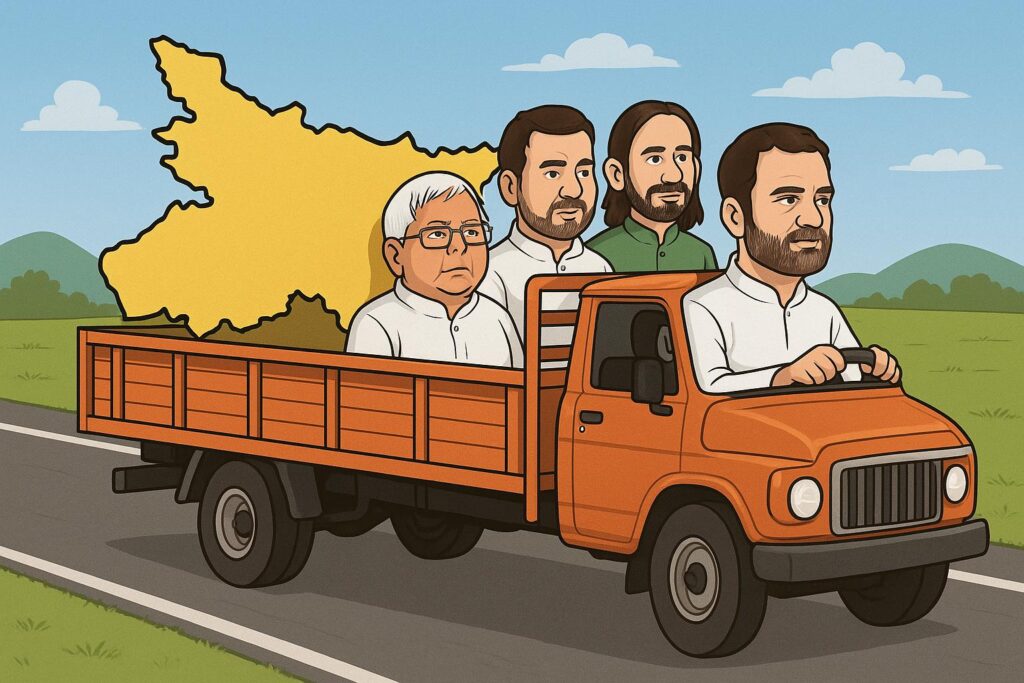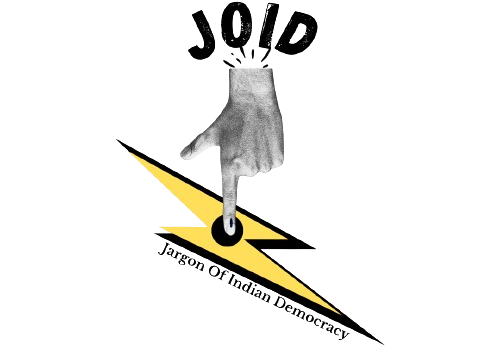
The Congress Party once ruled Bihar with authority and respect. But everything changed in the 1990s, when it backed Lalu Prasad Yadav’s rise to power—a move that slowly pushed Congress out of the spotlight and into political irrelevance in the state for over 30 years. Today, history is repeating itself. By playing second ddle to Lalu’s son, Tejashwi Yadav, Congress risks staying weak in Bihar for the next 50 years too.
The Forgotten Voter: Upper Castes
One of the biggest losses Congress suffered after allying with RJD was the loss of upper-caste voters, especially Brahmins, Bhumihars, Rajputs, and Kayasthas. They were among the upper-caste groups that once firmly supported the Congress. They regarded it as a party that spoke for everyone and supported its inclusive ideals. However, when Congress partnered with the RJD, things took a different turn. Over the years, RJD’s sharp focus on backward-caste politics often came with rhetoric that blamed upper castes for the past. That narrative made many feel accused, sidelined, and politically homeless. So, when the BJP came along and offered them pride, recognition, and a platform, they shifted. Today, Congress barely has any connect with these voters. And let’s be honest, it’s not just about votes, it’s about trust. If Congress really wants to matter in Bihar again, it must leave the RJD’s shadow and reach out to every community with a message not of blame or caste arithmetic, but of inclusive politics and better future for all.
Why Congress Must Go Solo
Congress needs to rebuild its identity in Bihar. It cannot grow by always depending on RJD—it must speak directly to the people and revive its broad base, including Dalits, Muslims, upper castes, and backward castes. Bihar has already seen what BJP and RJD have to offer, and many voters are now looking for a fresh alternative. Congress can become that option—but only if it fights alone and commits to building a strong, independent team. Tejashwi Yadav’s RJD is largely limited to Yadav and Muslim voters, leaving many other communities feeling excluded. Congress, as a national party, should not act like a sidekick in the state. If congress wants to lead the country, it must also lead where it stands. Young voters and the aspirational class are tired of old-style caste politics. They want jobs, dignity, and real progress. Congress has the chance to connect with this generation—but only if it stops hiding behind RJD and takes the front seat.
RJD Alliance Has Only Weakened Congress
Let’s look at the numbers. In 2020, RJD gave Congress 70 seats to contest. Congress won only 19. RJD then blamed Congress for the alliance’s failure, even though the seat-sharing was done by RJD itself. Since then, Congress has continued to shrink in Bihar. It now has just 9 MLAs and no independent identity.
The public sees Congress as a junior partner without a clear voice. Voters ask: if Congress can’t lead in a state where it once ruled for decades, how can it lead the country?
What Congress Must Do Next
Congress should contest all 243 seats in Bihar on its own. They must identify local leaders, build strong booth-level teams, and focus on real issues: unemployment, inflation, education, farmer distress, and women’s safety. It should also re-engage with upper-caste voters, attract young professionals, and represent all castes, not just a select few. Fighting alone doesn’t mean fighting everyone. After elections, coalitions can be discussed. But before that,
Congress must prove that it stands for something—and stands on its own.
Congress helped Lalu rise. Now it’s helping Tejashwi grow. But if it stays in the back seat
forever, who will drive the future of Bihar? It’s time for Congress to take the wheel.
Read our other articles : Jai Bhim | Old is Gold , Resurrection of ‘Dynasty Politics’ , China Faces 125% Tariff by USA: A Strategic Opportunity for India, When the Accuser Becomes the Accused

Ravi Kumar is a political consultant and Socio-Political Writer. He comments on different contemporary political issues and writes about it as he has sound experience due to his prolonged work on the ground as persistent observer of the Democracy on field.

Insightful